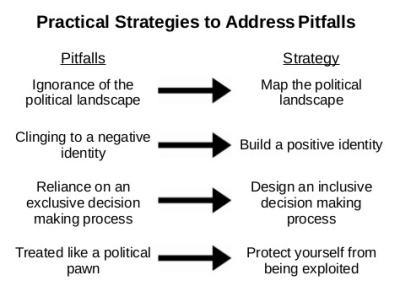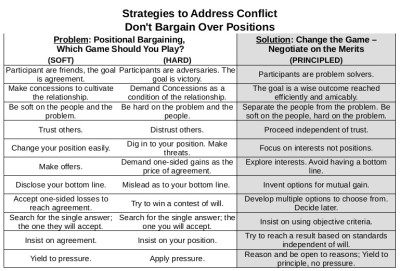I have had a revolutionary mindstate since I was 16 (I am 30 now), when
I realized our current government structure was corrupt and I started
searching for a new philosophy. I came into Marxism-Leninism-Maoism.
Ever since then I have been a sort of pariah in society for my views. I
caught my first bid at 18 and have been in and out of the prison system
repeatedly. Mind you these prison bids were my own fault but the length
of the sentences were always to the extreme. I was never given a second
chance. Now I am in a Level 4 work release and finally about to go home
in a few weeks and felt it necessary to share my views.
For starters oppressor-nation lumpen organizations should not ever be
trusted. Joining with their factions they will try to incorporate their
bigoted views into our cause and give true freedom a sour taste in our
mouths. That is why we should avoid this situation. A united front is
exactly how it sounds, united at all fronts no matter your race, sex,
creed, or class. Hatred should not be tolerated within our ranks.
The same goes for pariahs such as snitches, child molesters, and
rapists. These are things we should not tolerate. In order for the
revolution to succeed we cannot have people looking at our organizations
as a threat to house and home. Unity is built on trust. Would you trust
a convicted and known child molester to be around your children, or a
convicted rapist to be around our wimmin? I know I wouldn’t. Amerikkka
would love for us to have dissension within our ranks and we cannot
afford to have this.
As for snitches, they work for the government! This cannot be allowed to
infiltrate our ranks. If you would tell on a case so you don’t go to
jail, how can we trust you with political treason? Our revolutionary
leaders are already being killed and incarcerated, we cannot let in
anyone who will jeopardize more of our leaders. Take for instance, one
of us was in contact with Edward Snowden (a true patriot, also this is
all hypothetical) if a snitch caught wind and set him up to be arrested
a leader will be lost.
Comrades I encourage you to think about the implications of letting
these kinds of people into our rank and file. Long live the revolution.
MIM(Prisons) responds: This writer raises an important point
about who we can organize with. A comrade in Virginia wrote in with
similar concerns:
“Individuals lose sight that to these bigotry-minded organizations we
are stupid. They feel as tho we need them to survive. I don’t agree with
that at all, ULK and all the brothers and sisters make it work and it
means so much to me that we have this movement. If these oppressors know
our lessons and remedies for the oppression we hope to stop it will be
so much harder for us to stand against this imperialist movement they
run daily.
”Just because they say they want to help does not
mean that’s their goal. See when they start sentencing whites to harsh
treatment as they do our people daily and blanket the way we are
oppressed then I can say their actions show they want to help us. It’s
not the case of wanting to help us it’s about them gaining intel on our
movement, so for that I disagree with any movement of this struggle
joining forces with oppressive white groups.”
Both these writers express concerns that undermine our position against
coalition-based organizing in favor of building united fronts. Below we
explain the difference between united front and coalition organizing,
and we encourage our readers to write in with your thoughts if you think
this distinction would resolve the concerns presented above. Below we
make generalizations about the two modes of collaboration, but of course
there may be some coalitions that operate more similar to a united front
and vice versa.
In united front organizing, various organizations come together to work
on a specific goal or project. All the organizations maintain their
independence, which is a very important distinction from coalition
building. So in a united front, white supremacist groups could maintain
their bigoted views and their ultimate goal to undermine our
self-determination. At the same time, liberatory organizations maintain
our politics of anti-imperialism, anti-amerikkkanism, equality for all,
etc.
On the other hand, in the coalition model, the groups are supposed to
agree on and uphold the ideology of the coalition, which usually forces
the more progressive grous to water down their line on the issue.
Talking points are chosen and orgs in the coalition are supposed to
stick to the talking points.
For example, if we enter into a united front with a prison reformist
group which has a goal of reforming the prison system within capitalism,
we will not tell them that they must agree with the need to overthrow
capitalism in order to resolve the problems they are trying to fix. They
also can’t force us to advertise that a series of reforms, while keeping
capitalism and U.$.A. intact, is what we need to end oppression within
prisons. Each organization is able to push the agenda of the united
front (in this case, that Amerikan prisons are terrible) while putting
our own analysis on the issue. In a coalition on the same topic, there
is usually a greater unity of political line, which often means the line
of the most progressive orgs are put on the back back back burner. All
the groups don’t agree we need revolution, so revolution is not allowed
in the campaign.
To the writer in Virginia’s concerns, about the security of our movement
if we allow oppressor-nation lumpen organizations to gain intel on our
inner-functions, we believe that first an accurate assessment must be
made to figure out if these groups actually do have a genuine interest
in the goals of the collaboration. If that assessment is accurate, then
working together in a united front, focused specifically on a particular
goal or task, should help protect us from these attacks because the
information that needs to be shared is much more limited. The level of
unity required is much more limited. The conversation is focused on
“what will we do about this one particular problem?” and each group’s
practical contribution to the campaign is left to itself to carry out.
So we disagree with the Delaware comrade’s definition of a united front
as being united on all points. Instead we see it as united against a
specific enemy or to achieve a specific goal. But let’s disregard
semantics for a moment, and ask if these comrades believe we should
still not work with opppressor-nation lumpen orgs, even if we use an
independence-based united front model? Why or why not, and what examples
can we look to to help us make this analysis? Would we be able to
achieve our goals even if we have a policy to never have tactical unity
with oppressor-nation groups?
More on security. Obviously snitches are dangerous to revolutionaries.
However, people can be reformed. It is possible someone in prison got a
reduced sentence for ratting out someone else. But once in prison they
might come into contact with revolutionaries who educate them on the
importance of unity amongst the oppressed and they are self-critical
about their actions and resolve to never act against the oppressed
again. We should not shun this persyn forever, but instead encourage
their transformation and embrace genuine change.
We also call out the question of “convicted and known” rapists. Who is
doing the convicting? Why do we trust the criminal injustice system to
tell us who is a rapist? New Afrikan men accused of raping white wimmin
are likely to be convicted, regardless of the facts. Accepting
conviction as truth is something every prisoner knows to be dangerous.
And so we ask why this conviction is an acceptable measure for rape? Of
course anyone who advocates gender oppression or believes it is their
right to sexually assault others will have fundamental disagreements
with us. But we can’t just trust the state to tell us who are our
friends and who are our enemies.
It is perhaps one of the biggest challenges for the oppressed to build a
United Front against a principal enemy, overcoming the divisions put on
us by the imperialists, and identifying allies even in the face of
significant and fundamental disagreements over certain important issues.










